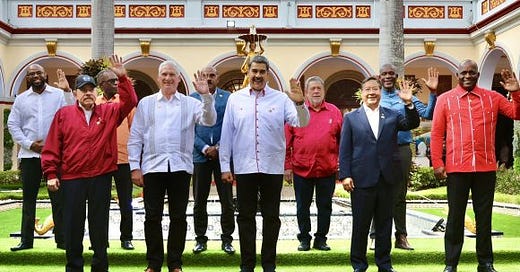Hugo Rafael Chávez Fríaz was born on July 28, 1954, in a rural village of Venezuela. The son of a schoolteacher of peasant origins, Chávez was reared principally by his half-indigenous grandmother, who lived near his parents. At age 17, Chávez entered the Military Academy of Venezuela, earning a commission as Second Lieutenant in 1975. Although uninterested in political or world affairs as an adolescent, during his time at the Military Academy he read the writings of Bolívar, Mao, and Che, which led him to the development of an understanding that he would later describe as a synthesis of Bolivarian and Maoist concepts. He pursued these issues further in a master’s program in political science at Simón Bolivar University. He continued to read books of historical, political, social, and literary significance during his military and political careers.
During the 1970s and 1980s, Chávez led young officers in the development of a reform movement within the military. On Febru…


